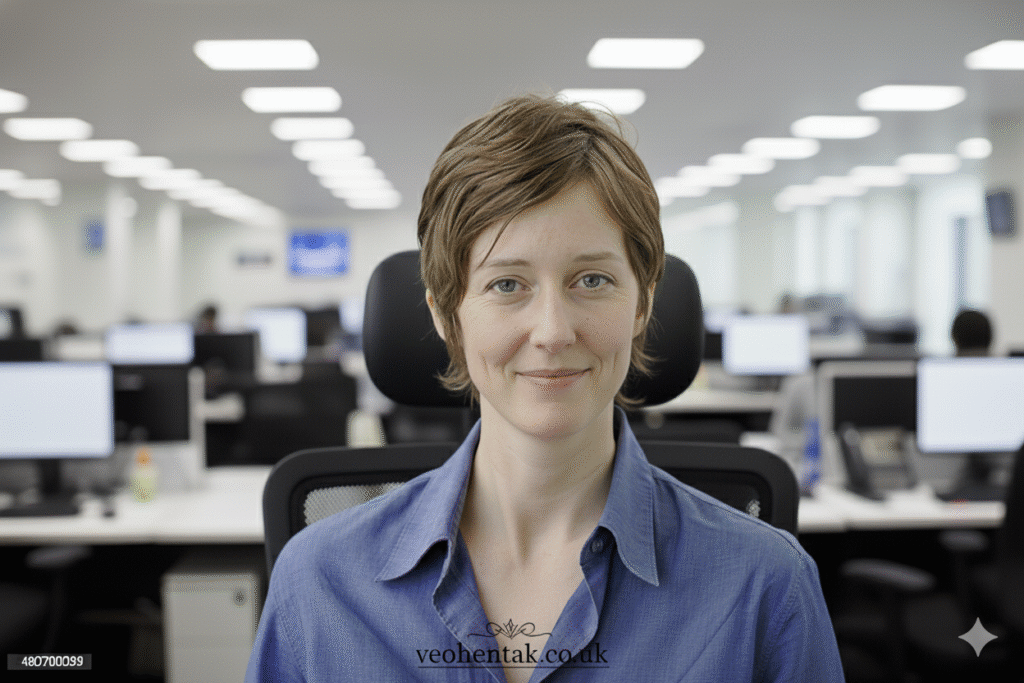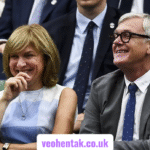Lucy Williamson is an accomplished BBC correspondent known for her insightful international reporting across Europe, Asia, and the Middle East. Her coverage blends accuracy, empathy, and global context, offering audiences a deeper understanding of political and humanitarian events. She exemplifies modern journalism through clear storytelling, cultural awareness, and an unwavering commitment to verified facts.
This comprehensive article explores Lucy Williamson’s professional journey, tracing her path from education to frontline journalism. It highlights her field assignments, editorial philosophy, verification techniques, and ethical considerations that define credible global reporting. The piece also examines how she balances speed with accuracy and how cultural literacy strengthens her storytelling. Readers will discover how Williamson’s work contributes to informed public dialogue and how her approach to conflict and diplomacy offers lessons for aspiring journalists in today’s complex, digital media landscape.
Introduction
Lucy Williamson is a veteran correspondent for BBC News who has built her career reporting from Asia, Europe and the Middle East. After early postings in Korea and Indonesia, she went on to cover stories from Jerusalem and the Gaza Strip, bringing clarity to complex conflicts and diplomatic issues. With a style grounded in cultural knowledge, source verification and multimedia storytelling, Williamson serves as one of the few international journalists able to bridge frontline events with broader global understanding.
Quick Bio Table
| Field | Details |
| Full Name | Lucy Williamson |
| Profession | BBC Correspondent & International Journalist |
| Education | Reportedly studied English & Persian |
| Work Regions | France, Korea, Indonesia, Middle East |
| Known For | Insightful conflict and diplomacy coverage |
| Experience | Over two decades in broadcast and field journalism |
| Distinct Traits | Fact verification, empathy, cross-cultural understanding |
Early Academic Foundations and Language Training
Lucy Williamson’s early academic background helped define her approach to international reporting. She reportedly studied English and Persian, subjects that developed her linguistic dexterity and analytical thinking. Those studies cultivated curiosity about global affairs and cultural nuances. Her ability to interpret language, literature, and politics eventually evolved into a journalistic lens focused on human stories within global structures. These foundations remain visible in her interviews and field coverage, where nuanced observation meets intellectual clarity.
Entering the BBC and Building Editorial Experience
Her career at the BBC began through rigorous newsroom training, where editorial precision and field readiness were equally emphasized. Williamson learned to navigate fast-paced deadlines, verify leads before publication, and adapt stories for multiple media formats. This practical experience prepared her to handle breaking news under pressure, while maintaining the ethical balance between audience urgency and factual accuracy. BBC’s editorial culture reinforced her discipline, teaching her how to communicate both speed and substance effectively.
- Also Read This: Jayne Posner: The Untold Journey of Strength and Grace
Diverse Global Assignments and Cultural Exposure
Williamson’s postings across Asia, Europe, and the Middle East gave her a front-row seat to history. She covered elections, protests, refugee crises, and social transitions, showing how local stories reflect global patterns. Reporting from countries like Korea and Indonesia taught her adaptability, while her European and Middle Eastern coverage built insight into governance and diplomacy. This geographic range not only sharpened her political analysis but also strengthened her empathy for the people behind global headlines.
Conflict-Zone Journalism and the Value of Verification
Working in volatile environments demands planning, courage, and precision. Williamson’s conflict reporting demonstrates responsible risk management and ethical judgment. She cross-checks each statement through multiple sources before broadcast, ensuring integrity even under tight deadlines. Her process underscores how reliable reporting depends not on proximity to danger but on commitment to truth. Journalists like her remind the world that accuracy and humanity can coexist, even amid chaos.
Deciding Which Stories Deserve Global Attention
Editorial judgment defines a correspondent’s credibility. Williamson chooses stories that balance human emotion with political consequence — local voices that reveal universal lessons. Whether highlighting a farmer’s struggle or a refugee’s displacement, she links micro-stories to macro-events, helping global audiences relate to faraway crises. Her instinct for relevance transforms ordinary events into teachable narratives, bridging the gap between policymaking and lived experience.
Framing Diplomacy and International Relations Clearly
Political reporting often drowns in jargon. Williamson simplifies without diluting, converting policy language into real-world meaning. By comparing official promises with observable impact, she brings accountability to diplomacy. Her balanced approach encourages public engagement in international affairs, proving that clarity can coexist with complexity. Through concise explanation and firsthand observation, she bridges the distance between global summits and everyday citizens.
Multimedia Storytelling in the Digital Age
As a multi-platform journalist, Williamson creates content tailored to each medium:
- Visual storytelling for television features
- Long-form analysis for online readers
- Audio summaries for radio audiences
- Real-time updates for social media follower
This strategic flexibility maximizes her reach and ensures her work remains accessible across demographics. She treats every platform as a distinct storytelling opportunity rather than a repetition of the same narrative.
Building and Maintaining Public Trust
Trust is journalism’s currency. Williamson’s reputation rests on honesty and transparency. When errors occur, she supports prompt corrections and context updates, reinforcing audience faith in the process. Her composure under scrutiny exemplifies how responsible reporters maintain credibility through accountability rather than defensiveness. This mindset distinguishes ethical correspondents in an age where misinformation spreads faster than facts.
Navigating Ethics and Human Sensitivity in Reporting
Every story carries ethical weight, especially those involving vulnerable individuals. Williamson’s work highlights the balance between truth-telling and respect for privacy. She anonymizes sources when needed, gains informed consent before filming, and consults editors on sensitive content. Such diligence not only protects subjects but also enhances long-term audience trust. Ethical restraint is not weakness — it is a hallmark of professional integrity.
Advanced Verification Techniques in Modern Journalism
To ensure factual precision, Williamson and her teams use structured verification tools:
- Reverse image searches to confirm location and timing
- Metadata checks on shared visuals before broadcast
- Cross-referencing witness accounts with credible databases
- Consulting NGOs and independent analysts for context
These layers of validation separate professional journalism from speculation, creating content that withstands digital scrutiny and algorithmic ranking filters.
Language, Culture, and the Power of Local Understanding
Cultural fluency allows correspondents to move beyond translation into interpretation. Williamson’s grasp of local dialects and historical references enables interviews that reveal truth rather than rehearsed statements. By understanding subtle cultural cues, she uncovers perspectives often missed by foreign press. This sensitivity not only enriches her storytelling but also protects against bias, reinforcing the importance of empathy in global media.
Using Social Media Responsibly for Modern Audiences
Social media has become both an amplifier and a battlefield for journalists. Williamson uses it strategically — sharing verified snippets, correcting misinformation quickly, and engaging respectfully with diverse opinions. Her online presence balances accessibility with restraint, focusing on transparency rather than personal branding. This model shows younger journalists how to maintain professionalism while embracing digital dialogue.
Career Highlights and Professional Recognition
Williamson’s long career includes coverage of significant global events — from European elections to Middle Eastern conflicts and cultural revolutions. Her detailed field reports and calm analysis have earned respect from peers and audiences alike. Though not driven by fame, her recognition stems from consistency and substance: telling stories that outlive the news cycle and contribute to the historical record.
Mentorship and Lessons for Aspiring Reporters
Aspiring journalists can learn key lessons from Williamson’s career:
- Master core ethics before chasing exposure.
- Build multilingual and multimedia competence.
- Value accuracy more than speed or sensationalism.
- Cultivate empathy for people behind statistics.
Her example shows that journalism’s purpose is not popularity but service — illuminating truths that strengthen public understanding and compassion.
Why International Correspondents Still Matter
In an era of citizen footage and AI-generated news, correspondents like Williamson safeguard professional standards. They verify, contextualize, and humanize information. Their work anchors global audiences in truth, offering continuity amid the noise of digital misinformation. Her career stands as evidence that field-based journalism remains essential to informed democracy and cross-cultural respect.
Conclusion
Lucy Williamson’s professional life reflects journalism’s highest ideals — courage, accuracy, empathy, and context. Through her international assignments and disciplined storytelling, she has built a legacy that transcends breaking news. Her example demonstrates how informed journalism can preserve truth in a world of flux, teaching future generations that ethical storytelling remains the foundation of global trust.
FAQs
1. Who is Lucy Williamson?
A senior BBC correspondent recognized for her global fieldwork and insightful international reporting.
2. Where has she worked?
She has served in France, Korea, Indonesia, and the Middle East, covering both political and humanitarian issues.
3. What defines her reporting style?
Balanced storytelling, factual accuracy, empathy for subjects, and deep cultural understanding.
4. How does she verify information?
Through layered verification using official documents, metadata checks, eyewitness triangulation, and NGO collaboration.
5. What can young journalists learn from her?
Commitment to ethics, cross-platform adaptability, cultural literacy, and the discipline to verify before publishing.
- For More nfo: veohentak.co.uk


